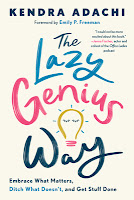Set in China starting in 1941, the story revolves around Chefoo School, a British-run school for children of missionaries (mostly from Europe, Australia, and the United States) that functioned very similarly to a boarding school, where the children were taken care of mostly by the teachers and the staff and would only see their parents a few times a year. The story is narrated in alternating viewpoints by Elspeth Kent – one of the teachers at the school – and Nancy Plummer, who started attending Chefoo School at 8 years old. When war breaks out and Japanese forces invade China, the school comes under the rule of the Japanese Imperial Army. With guards watching their every move, the students and staff become enemy prisoners whose lives constantly hang in the balance. Later, when the army takes over the school to use as a training base, everyone is forced to relocate, first to a rundown housing complex, then to internment camps where they remain through the end of the war. In the face of numerous challenges and hardships living in the midst of war, it is the bond that forms between these students and teachers that sustain them through the most difficult of days as well as through lifetimes.
For me, the mark of good historical fiction is its ability to make the reader feel like we've been transported back to a particular time and place – the truly great works go a step beyond in that they make us feel like we are actually living the characters' realities and experiencing what they go through first-hand. Unfortunately, with Hazel Gaynor's latest book, When We Were Young and Brave, I did not experience what I usually do reading historical fiction (which is definitely an issue, since historical fiction is one of my favorite genres to read). The biggest problem I have with this book is that the portrayal of time and place in the story was not strong, which made it difficult to feel transported. The setting of the story was in China during Japanese Occupation in the 1940s, but to be honest, I felt like the story could've taken place anywhere during that same time period and it still would've been essentially the same story, as there were basically no cultural elements to speak of in the story outside of a handful of references to Chinese cities and also two Chinese servants who worked at the school. The ambiguous way in which the setting was portrayed in the story is actually one of the things that bothered me the most. But again, it goes back to my sensitivities perhaps being different from other readers due to my cultural background and familiarity with this particular period of history. To put it more clearly -- given the location and time period in which the story takes place, I was expecting there to be a certain amount of historical and cultural relevance that would've tied the story to the setting in a more significant, meaningful way – but that didn't happen with this book, which is the main reason why I felt disappointed. Despite the knowledge going into this one that the story was based on true events, I still couldn't help wondering, at numerous points while I was reading, why the author would choose to set the story in China during World War II when, technically, neither element was truly significant to the story.
The other area where I felt let down was the lack of emotional depth to the story. Perhaps because of the above-mentioned issues I had with the sense of time and place, I felt like it was difficult for me to get into the story. Each chapter was narrated from the characters' first-person point of view, which normally would make it easier to empathize with the characters, but yet, throughout the entire story, I didn't really feel much for the characters, despite the ordeals they endured. To me, the way the story was told, it felt emotionally detached, as though the narrators were reciting facts rather than a lived experience. Of course, that's not to say that the story wasn't important, as I'm a strong believer that all stories — especially personal stories — are significant and important in their own way. But I think the way the story is presented matters as well and in this instance, the story as presented didn't really work for me.
With all that said, there were things that I did like about this one and the reading experience wasn't all bad, which is why I ended up rating this one 3 stars despite the issues I had with it. And it definitely hasn't put me off from reading this author's other works, as I truly feel that this was just an instance of this particular book not being right for me. Hopefully the next one will work out better.
Received ARC from William Morrow via NetGalley



